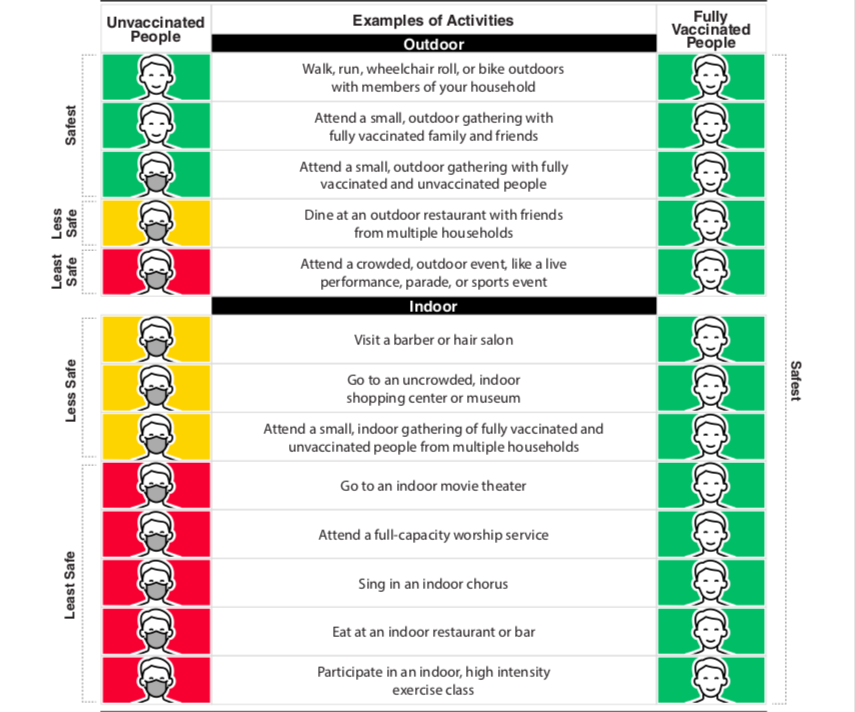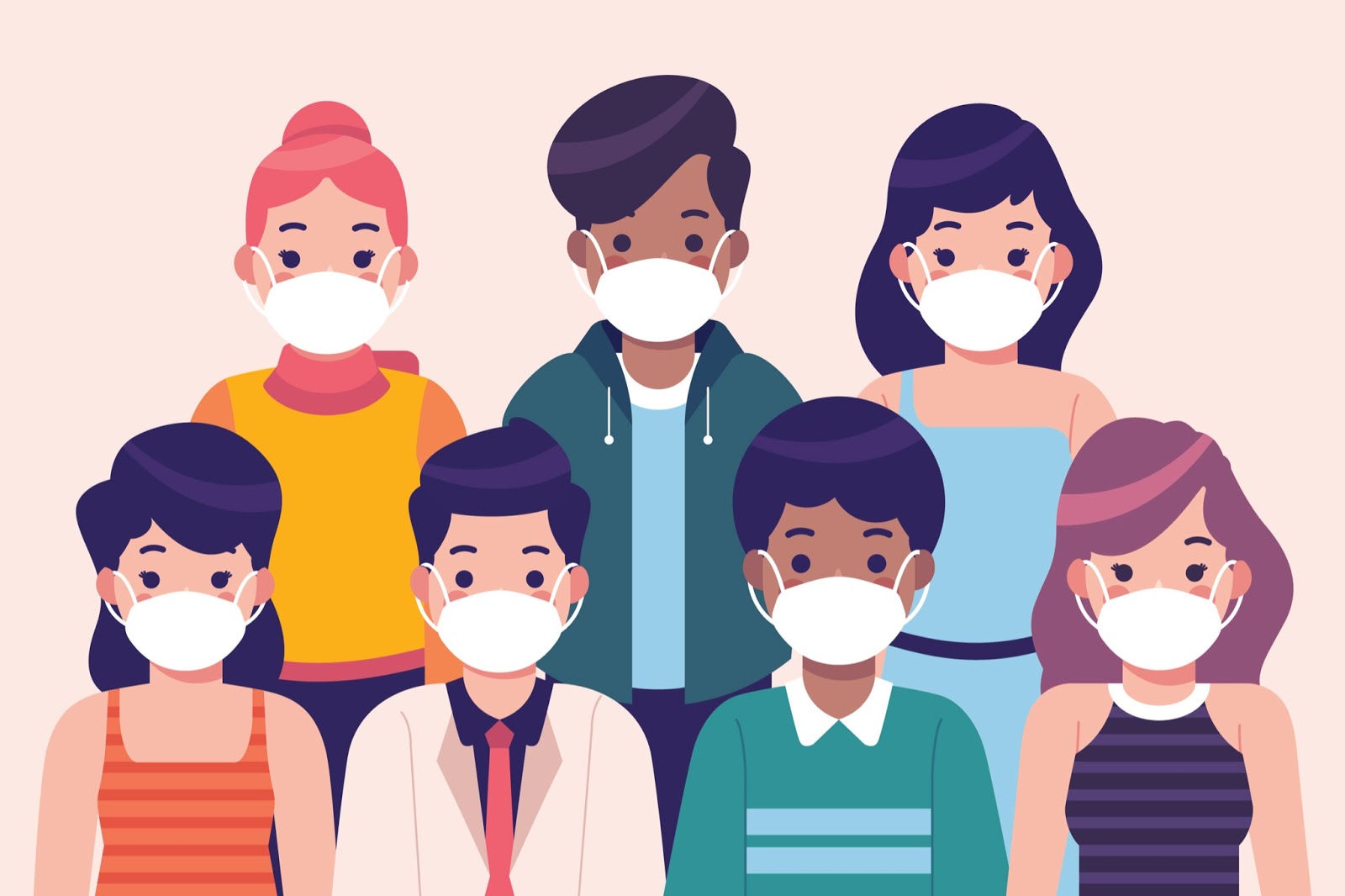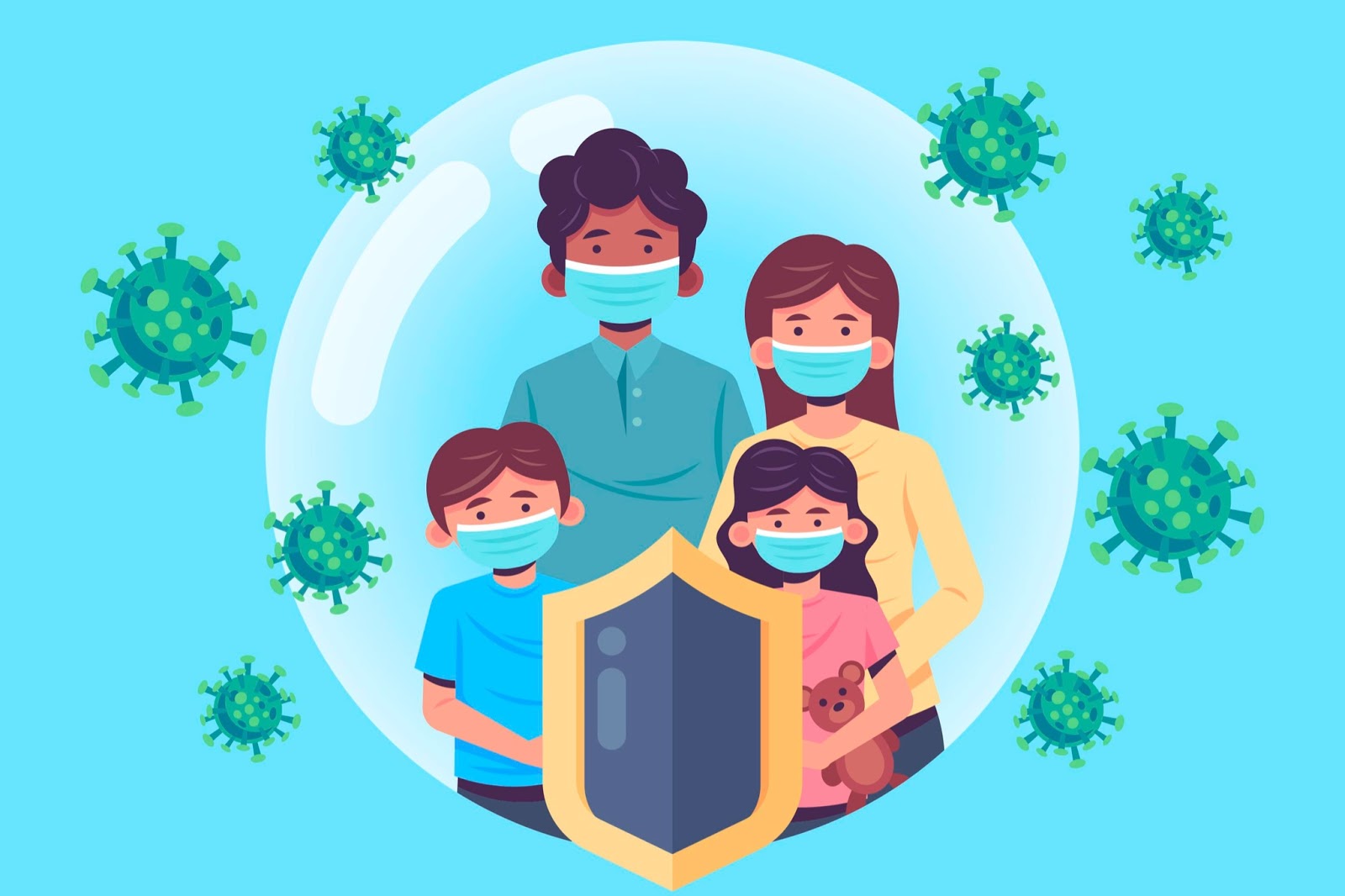At the beginning of the coronavirus outbreak, over two years ago, public health restrictions overran our lives to stop the spread of the novel virus. Lockdowns, isolations, and quarantine measures impacted all kinds of people, preventing them from visiting loved ones and enjoying the company of friends. In these uncertain times, a new set of rules is needed to keep ourselves, and others, safe.
What is a Social Contract?
The Merriam-Webster Dictionary defines a social contract as “an actual or hypothetical agreement among the members of an organized society… that defines and limits the rights and duties of each.”
Ideally, a social contract is built upon trust. It also stands upon the idea that the collective whole benefits when each individual member feels safe and secure.
Social contracts should express the will of the people, while reflecting their shared, communal interests. They’re meant to provide both a behavioral and ideological framework, put in place to benefit the entire community.
In the past, social contracts have held Americans to a certain standard. However, the past two years have been a tense mix of social unrest and political conflict, with the novel coronavirus ever-present, looming in the background. This combination of factors has made adhering to any social contract nearly impossible, with the nation divided on the theories of physical safety and the reliability of science.
The increased skepticism surrounding our neighbors as the masks come off (due to vaccinations or personal preference) only stresses the need for a “renewed” social contract: the CDC’s new masking policies have left many feeling confused, weary, and scared.
The Current Mask Regulations
The CDC’s updated guidelines state that vaccinated people “no longer need to wear a mask or physically distance in any setting, except where required by federal, state, local, tribal, or territorial laws, rules, and regulations, including local business and workplace guidance.”
Unvaccinated people are still expected to “mask up,” unless in the presence of others who are fully vaccinated, or members of their own household. Of course, some situations pose a greater risk to unvaccinated people than others – especially indoor activities involving large groups of people.

Anxiety in These Uncertain Times
The skepticism is especially great in people who lost loved ones due to COVID, as well as those in communities ravaged by a lack of resources to combat the virus. Individuals caring for children under 12 (who are not yet allowed to be vaccinated) have also voiced the anxiety surrounding the new mask regulations.
Fooled by Forgery: A Cause for Concern
The uncertainty surrounds vaccinated people, who aren’t required to wear a mask, and those who choose to take unfair advantage of the new regulations without being vaccinated. Because vaccination cards are the only documentation given to those who receive shots-in-arms, some anti-maskers are going so far as to commit forgery.
Originally, the cards weren’t intended to be society’s “ticket to freedom;” instead, they were meant to serve as a reminder for patients to get their second round of either the Moderna or Pfizer-BioNTech vaccine. However, some people believe a counterfeit card of their own will help navigate the world as it reopens. Blank vaccination cards are being found everywhere from the Darknet to Craigslist, with little-to-no penalty being instituted for those caught with a counterfeit card.
The Social Contract: Why It’s Necessary
Without a social contract to aid in people’s physical safety and mental health, individuals are finding themselves in situations full of conflict and stress. In some cases, these events bring traumatic remembrances of the past year to the forefront of the mind: forcing them to face difficult situations while combating strong emotions, such as grief.
When reminders of the traumas endured over the past two years, both large and small, present themselves, a person may find themselves unusually upset or reactive.
As we face new guidelines and new “old” experiences, we as a group must also reinvent and re-engage with the social contract, as it is our duty to others, and ourselves.

Thinking for Yourself: Some Thoughts to Consider
As we re-immerse ourselves in social situations, we can take certain steps to ensure we are fair to ourselves, and to others, too.
Speak Honestly.
Do not attempt to hide your vaccination status, and be respectful of others’ decisions to interact with you. They deserve to know the truth, so that they can make an informed decision as to how much they will, or won’t, engage with you.
Act With Empathy.
Though we’ve all experienced trials and tribulations over the past two years – whether it be quarantines, lockdowns, illnesses, or loss – we cannot know for sure what others have gone through. The truth is, over 32 million Americans were ill with the coronavirus, some of which must learn to live with life-altering changes in their day-to-day existence. Over half-a-million U.S. citizens lost their fight to COVID-19, leaving loved ones behind who are still processing grief.
By acting with empathy and being aware of your own experiences, you’ll find yourself treating others with kindness and being more tolerant of their behaviors. As you learn to re-navigate the social sphere, remember to be kind to yourself, too.
Consider Consent.
Regardless of a person’s vaccination status, be sure to ask those you engage with their comfort level regarding maskless encounters, physical touch, and close contact. While it’s important to consider the thoughts and feelings of others, think about your own boundaries as well. We all deserve the opportunity to get reacquainted with ourselves as we step back into social situations, and move at our own pace.
If you are not vaccinated and refuse to wear a mask, understand others may want to keep their distance or limit their interaction. Do not respond with an angry outburst; if you must, remove yourself from the situation, keeping in mind the comfort level of all parties.
Prioritize Your Mental Health.
Remember to be gentle with yourself as you re-emerge into the community– it can feel strange to orient yourself in public spaces again, and it’s completely natural to “ease into it.’ Practice coping ahead, and comfort yourself as necessary. Your body, mind, and neighbors will be better for it.

As we redefine the social contract in regards to masking and vaccinations, it’s important to remain patient with ourselves and others. By speaking honestly, acting with empathy, and considering consent, you’ll help everyone around you re-enter the social sphere.
